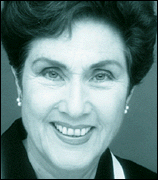

![]()
Gathering Places


![]()
Gathering Places
The Hawaii Supreme Court is slated to receive soon an urgent plea to reverse an ill-considered lower court judge's decision to permit the University of Hawaii Board of Regents' secret maneuvers that weaken the state's open-meeting law. Regents must
not be allowed
to ignore lawCircuit Judge Virginia Crandall ruled on May 17 that the board did not violate the state's open-meeting law when it met at two secret meetings to set the salary of UH's incoming president at $442,000 annually or $3 million over the seven years of his contract.
That figure makes UH President-designate Evan Dobelle the highest paid official in the state, giving him more than double that of the current president and four times that of the governor. The plea to the Supreme Court comes from the Hawaii chapter of the Society of Professional Journalists and student activist Mamo Kim after Judge Crandall denied their motion for a temporary restraining order and injunctive relief.
The closed-door meetings were held by the board just before it raised student tuition -- with community college students the hardest hit -- and as the state was saying it was too hard-up to increase faculty pay sufficiently to avert a strike.
One board circumvention approved by the judge might be described as "rolling recesses. The board met on Feb. 23 in an announced "executive session" -- or behind closed doors -- but failed to give proper notice to the public that it was considering UH presidential finalists.
The board recessed to March 1 and again to March 5. The board also failed to provide public notice of these meetings. This practice flies in the face of the law: "The board shall give written public notice of any regular, special, or rescheduled meeting, or any executive meeting when anticipated in advance."
The law requires that exceptions to open-meeting requirements "shall be strictly construed against closed meetings." One exception is to consider the hiring and evaluation of an official "where consideration of matters affecting privacy will be involved."
Instead of strictly construing this hiring-and-evaluation exception, the board circumvented the law by expanding this exception to cover the setting of salary -- and Judge Crandall agreed. Yet, Hawaii's open-meeting law does not permit closed-door decision-making about public officials' compensation.
In adopting Hawaii's sunshine law, the Legislature declared it is Hawaii's policy "that the formation and conduct of public policy -- the discussions, deliberations, decisions, and action of governmental agencies -- shall be conducted as openly as possible" and "the provisions requiring open meetings shall be liberally construed."
The Supreme Court should forcefully reaffirm this policy and legislative intent by setting aside Judge Crandall's ruling.
Holding a public meeting to comply with this legislative mandate and state policy will go a long way to take the sting out of the Board's secretive process that otherwise could run rampant, given UH's newly won autonomy.
Beverly Keever is a professor of journalism
at the University of Hawaii.